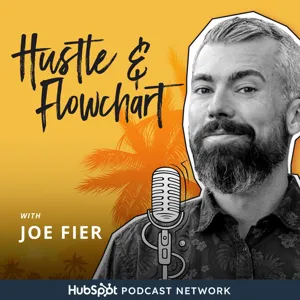Podcast Summary
Fed's Beige Book: A Tool for Economic Analysis: The Fed's Beige Book provides insights into the economy, but its impact on interest rates and sectors varies. Cybersecurity threats remain a concern, while Enbridge invests in renewables and Fundrise offers real estate investment opportunities.
The Federal Reserve's interest rate decisions are highly anticipated by the public, with many looking to the Beige Book for clues. However, the Beige Book, an obscure federal publication, is not a cause for celebration but rather a tool for economic analysis. The economy's future, like a tarot card reading, is open to interpretation. The Fed's decisions can significantly impact various sectors, and high interest rates can make real estate assets more affordable. Meanwhile, cybersecurity threats continue to evolve, making it crucial for businesses to stay informed and prepared. Enbridge is investing heavily in renewable energy and lower carbon solutions, while Arctic Wolf's researchers warn of a volatile 2024 for cybersecurity. Fundrise presents an opportunity to invest in real estate assets during times of high interest rates.
Addressing labor market challenges in manufacturing sector: Manufacturing companies in the US are facing a workforce crisis due to an aging workforce. To address this, they are revitalizing apprenticeship programs and promoting manufacturing as a good employment opportunity to attract young adults.
The manufacturing sector in the United States is facing a challenge due to an aging workforce. A critical bearing manufacturer in Richmond, Virginia, reported that their skilled tradesmen were approaching retirement and the company was revitalizing its apprenticeship program to train young adults from high schools and community colleges. This issue is not new, as textile plants in the region also faced similar recruitment challenges earlier in the summer. The manufacturer is actively promoting manufacturing as a good employment opportunity to generate interest among the younger generation. This situation highlights the importance of investing in workforce development to ensure the continuity of critical industries in the country. It's a reminder that the economy is constantly evolving, and addressing labor market challenges is crucial for businesses and the overall economy.
The Need for Skilled Labor in Manufacturing Remains: Despite advancements in technology, the need for skilled labor in manufacturing remains, particularly in industries producing essential components like fluid film Babbitt Bearings.
Despite the decline in manufacturing employment in the US since the 1970s, there is still a significant need for skilled workers in the industry. This was highlighted in a conversation with Adrianne Bardette, Vice President of Sales and Marketing at Pioneer Motor Bearing Company in North Carolina. The company, which has been in operation for over a century, manufactures a type of bearing called a fluid film Babbitt Bearing, which is essential for running large machinery such as hydroelectric plants and pumping stations. The bearings, which consist of a casing filled with a thin film of oil, help reduce friction and enable smooth rotation. The need for these bearings and the skilled labor required to manufacture them has not changed, and as the current workforce retires, there is a pressing need to replace them. The Richmond Fed's Beige Book report did not reveal the name of the bearings manufacturer that reached out to them, but the company itself contacted the media to promote its open jobs. The technology used in manufacturing bearings may have evolved, but the fundamental principles and the need for skilled labor remain the same. The world continues to spin because of these bearings, and the demand for them shows no signs of abating.
Addressing the Aging Workforce at Pioneer Bearings: To combat an aging workforce and attract new talent, Pioneer Bearings is improving benefits, offering high salaries, promoting apprenticeships, and reaching out to middle schoolers.
Pioneer Bearings, a company specializing in manufacturing precise bearings, is facing a significant challenge due to an aging workforce and the need to attract and retain new talent. With many machinists retiring in the next few years, the company is implementing various strategies to address this issue. They are improving benefits, offering high salaries, and promoting their apprenticeship program, which takes four years to complete. However, Pioneer Bearings recognizes the need to reach potential employees even earlier, and they are trying to interest middle schoolers in manufacturing careers. This is a tall order, as explaining complex manufacturing concepts to young students and overcoming the negative perceptions of manufacturing in small towns can be challenging. Despite these challenges, the company remains committed to expanding their workforce and ensuring the continued production of high-precision bearings.
Modern Manufacturing: Debunking Old Stigmas: Modern manufacturing facilities offer climate-controlled work environments and allow workers to leave if necessary. The bearings industry plays a crucial role in keeping various industries running smoothly, and it's essential to promote the positive changes in the industry.
The manufacturing industry has come a long way in terms of work environment and safety, but old stigmas persist. Stories of workers being trapped in factories during fires are still told, but modern manufacturing facilities are climate-controlled and allow workers to leave if necessary. Adrian, from the Richmond Fed, even showed off a futuristic 5-axis CNC machine that looks more like something from Star Trek than a traditional manufacturing setup. Despite these advancements, it's important to continue addressing these stigmas and promoting the positive changes in the industry. Another key point from the discussion was the importance of the bearings industry and its role in keeping various industries running smoothly. Joe Mangadoth, a Beige Book award winner, highlighted the importance of this industry and the need to keep it spinning. The episode was produced by Corey Bridges, engineered by Ko Takasuki Chernoban, fact-checked by Sarah Juarez, and edited by Kiki Kenyon. A special offer from NPR sponsor Mint Mobile was mentioned, providing unlimited talk, text, and data plans for $15 a month with a 3-month plan purchase. However, it's essential to note that there are additional taxes, fees, and restrictions that apply.





